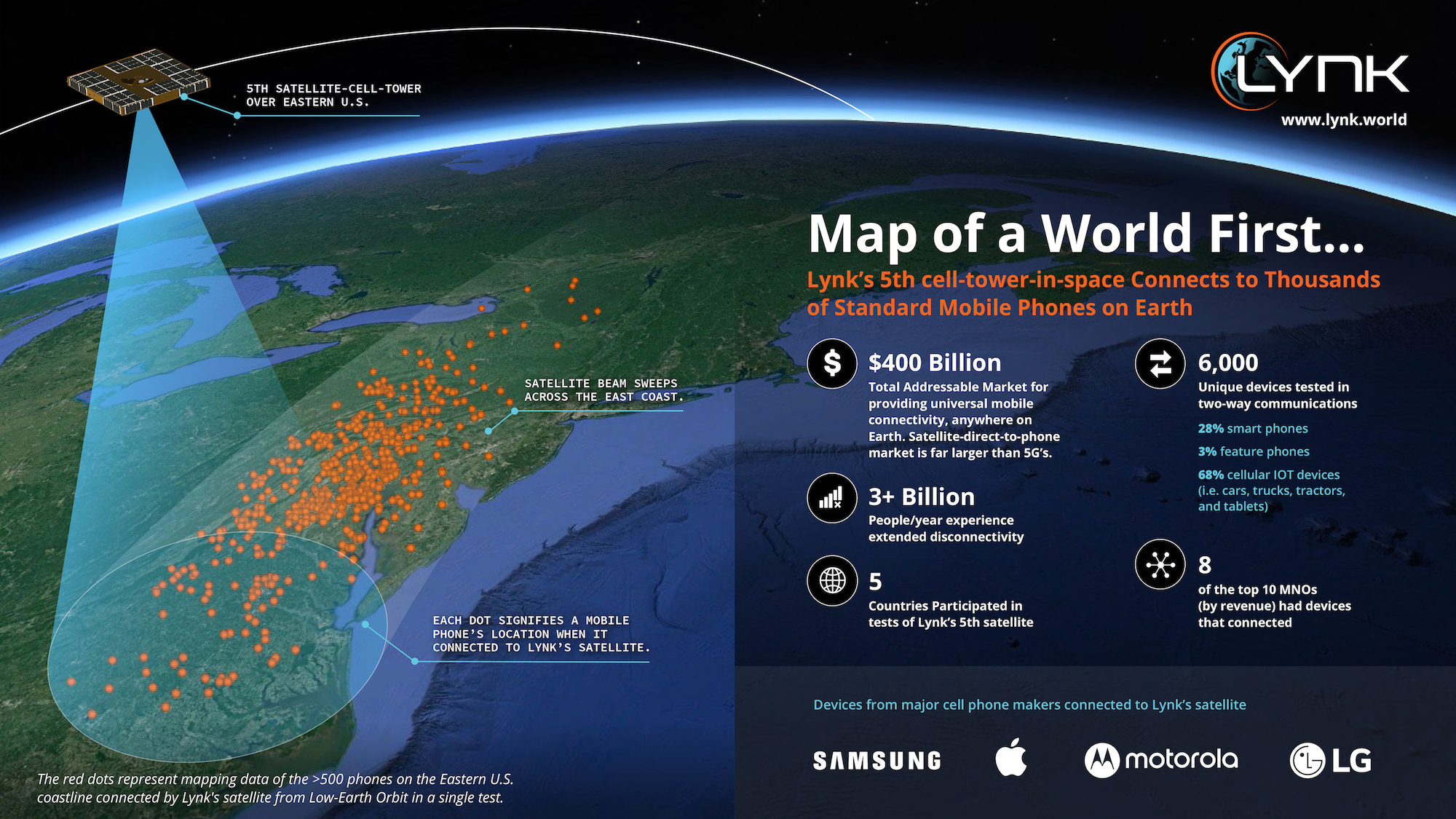Latest News

Lynk Global team. Photo: Lynk Global
Lynk Global reports that recent pre-commercial tests on its fifth satellite in orbit connected the satellite to thousands of unmodified devices, including cell phones and IoT devices.
Lynk said in a Tuesday release that the tests were done across five countries — the Bahamas, Canada, New Zealand, the United Kingdom, and the United States — connecting to mobile phones from eight of the top 10 mobile network operators in the world. The satellite connected to 6,000 devices including smartphones, tablets, IoT devices, cars, trucks, and even tractors, enabling direct two-way connectivity.
CEO and C0-founder Charles Miller told Via Satellite these tests were vastly improved over prior tests Lynk has conducted. They further validate Lynk’s satellite-to-cell technology, first demonstrated in early 2020.
“We were registering hundreds of devices of all different types,” Miller said. “For the first time ever, MNOs got to participate in send and receive. Independent, third-party observers sent text messages to and from space on their own phones.”
The company describes its technology as tricking a cell phone to think that it is a cell tower. The satellite is equipped with a cell tower software’s stack. When in commercial service it will function like a roaming service,
Miller said the tests uncovered some bugs and quirks to the software, which the company is updating for its sixth satellite, set to launch in April.
To take its service to market, Lynk is partnering with MNOs and will function as a roaming service when devices are outside the range of cellular coverage. Lynk has signed contracts with seven MNOs, including Aliv in the Bahamas, Telecel Centrafrique in the Central African Republic, and Unitel in Mongolia. Further partnership announcements are to come.
Miller said Lynk is actively in discussions with several major U.S. MNOs, some of which have tested on its network. “There’s real interest in what we are doing,” he said.

Lynk released this graphic about its recent satellite testing.
Lynk is anticipating a global operator’s license from the FCC after completing the comment period for its license. Because Lynk will use spectrum from MNOs in the countries it operates in, Miller said it was a requirement for MNOs to monitor the tests for interference, and they did not report harmful interference.
The company plans for initial commercial services later this year with emergency alerts and messaging backup services, which it can offer with its current on-orbit capabilities. Miller plans to ramp up bandwidth levels of service as Lynk adds satellites, eventually scaling up to around 5,000 satellites and broadband service to cell phones.
Miller emphasized that Lynk is initially targeting service with MNOs because of the spectrum needs, but the technology would be a natural fit for a partner like a vehicle safety system, or farm equipment.
“Cars come off the assembly line with cellular chips built in. We connected to cars with the cell chips that are built into the car. LoJack and OnStar don’t work if you don’t have a cellular connection. Now they’ll work everywhere, no change to your car,” Miller said. “When we sign up a major MNO in the United States, then we’re in a perfect position to go to the American car companies and tractor companies and [offer connectivity.]”
Get the latest Via Satellite news!
Subscribe Now